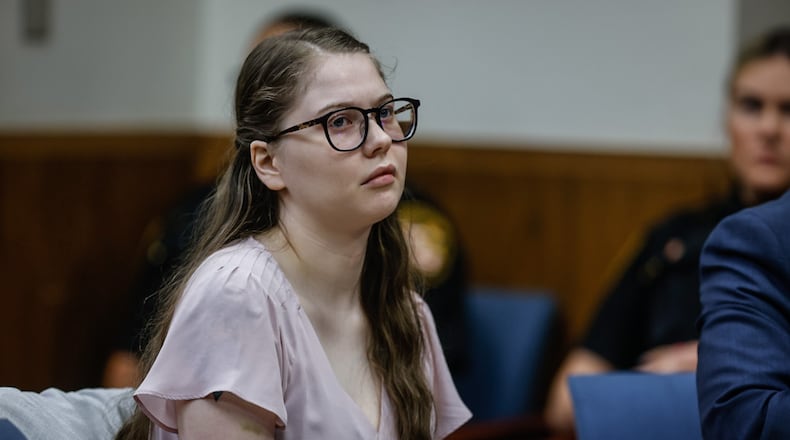A diagnosis of a seizure-related disorder does not bar a motorist from driving under Ohio law, but motorists are required to answer a question asking if they have or have had epilepsy or any “physical or mental disability or disease” when they’re issued a driver’s license.
Expert testimony by an Ohio Bureau of Motor Vehicles investigator during the Michaels trial found that she did not disclose her medical history — which included seizures and a brain surgery — in either her application for a driver’s license or her license renewal before the 2019 crash.
The Ohio Bureau of Motor Vehicles can deny, suspend or revoke driver’s licenses of people who have medical conditions that can influence their ability to safely control a vehicle.
The state bureau of motor vehicles can request that a physician attest to a person’s ability to safely operate a vehicle.
“Upon the conclusion of the examination, the registrar may suspend the license of the person, may permit the licensee to retain the license, or may issue the licensee a restricted license,” Ohio law says. “Refusal or neglect of the licensee to submit to the examination is grounds for suspension of the licensee’s license.”
Depending on what that person’s physician includes on the form, the person could be issued a restricted license, according to an Ohio BMV spokesperson.
Restricted licenses can include provisions related to the hours in which motorists can drive, whether they need supervision and how many passengers they can have in their car.
Under Ohio law, there is not a specific timeframe in which a motorist must be “seizure-free” before driving again.
Epilepsy Foundation of Ohio executive director Crystal Hagans, of Dayton, said there are more than 40 kinds of seizures, and a seizure can present itself differently for each person.
During a seizure, people can experience any combination symptoms like black-outs, convulsions, confusion, lack of awareness, muscle tenseness or looseness and more. Seizures can be triggered by multiple factors, including missed medication, lack of sleep, drugs, alcohol and stress.
Psychogenic seizures are not epileptic and thus not caused by electrical activity in the brain. Stress and psychological distress can trigger that specific kind of seizure, Hagans said.
Hagans recommends that any Ohioans who have seizures disclose their condition to the Ohio BMV and follow the steps given to them.
This typically includes visiting a doctor and having that physician sign off on your ability to safely operate a vehicle in a form provided by the Ohio BMV, as well as a follow-up appointment every six months, Hagans said.
An Ohio BMV spokesperson said that applicants for driver’s licenses of license renewals can face a misdemeanor charge if they are found to have “knowingly” concealed a “material fact” in their application.
In Ohio, physicians are not required to report a patient’s seizures to the Ohio BMV, but if they choose to disclose that information with the motor vehicles bureau, they can do so confidentially.
Motorists can also appeal the BMV’s decision if their license issuance or renewal is denied by the Ohio BMV.
Hagans advises people who experience uncontrolled seizures to talk to their neurologists or epileptologists about what medication can assist them. She recommends that people with uncontrolled seizures not drive.
“It’s OK to have someone else drive you somewhere, it’s OK to take the bus,” she said.
Dayton Regional Transportation Agency (RTA) can also help people with seizures get to wherever they need to go through a rideshare program, Hagans said.
“There are resources out there that can help you and mitigate your reliance on family and friends,” she said. “And we can help you, too.”
About the Author

